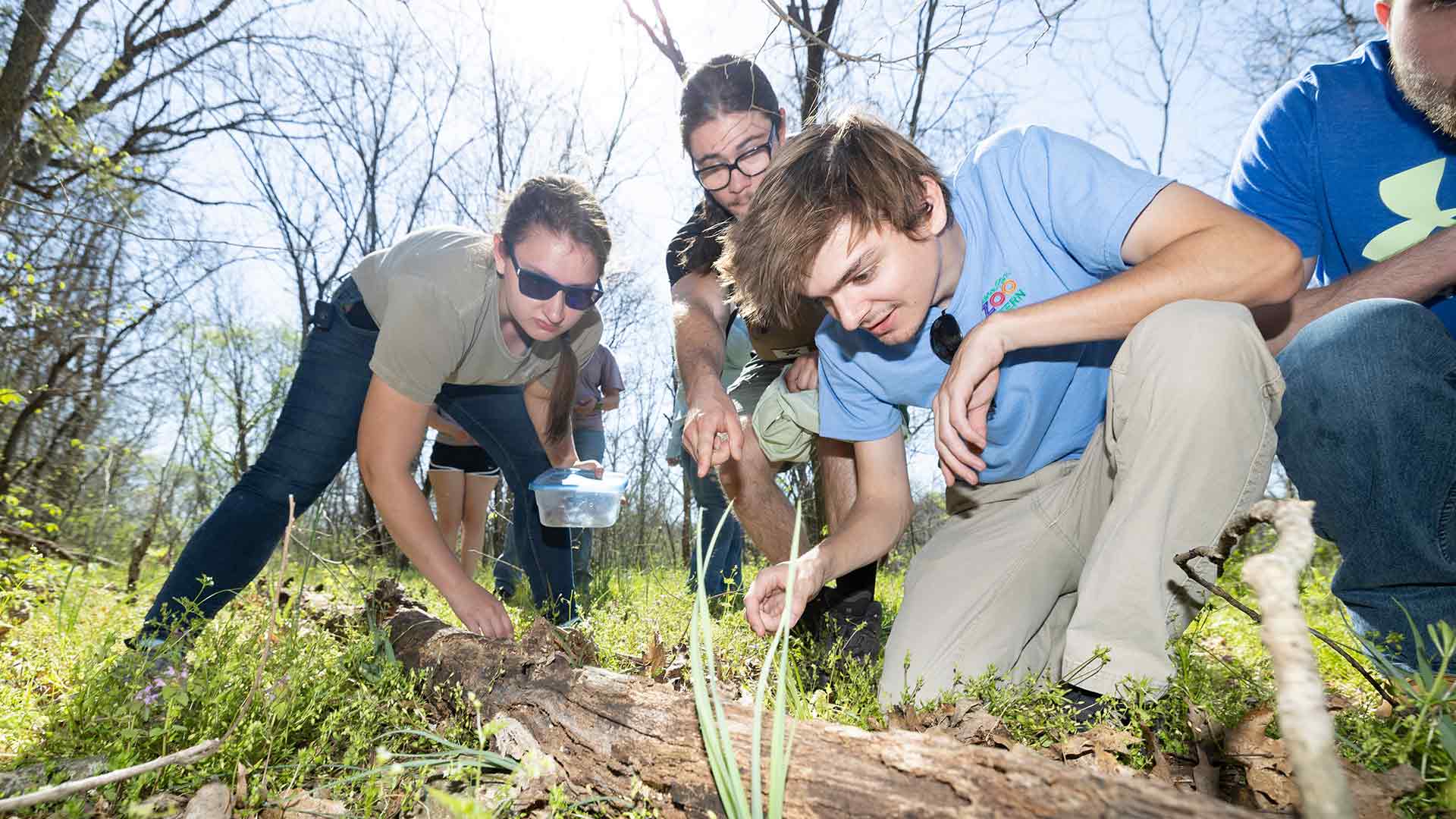Careers and Outcomes

Regulate and educate
Are you passionate about protecting the environment?
With a wildlife conservation and management degree, you'll play a crucial role in preserving our national heritage.
It doesn't stop with you, though. You'll teach others the importance of conservation for the sustainability of our planet and future generations.
What can you do with a wildlife conservation degree?
You will be employable in many conservation, natural resource and government agencies.
Possible career paths
Your degree will prepare you for work in industries involving animals, plants and natural resources. Job titles like:
- Conservation agents
- Conservation educator
- Environmental consultant
- Environmental educator
- Environmental policy analyst
- Fishery manager
- Habitat restoration specialist
- Inspector
- Nature conservation officer
- Park rangers
- Research specialist
- Wildlife ecologist
- Wildlife technician
You can also apply your knowledge to non-science fields, like agriculture, criminal justice and education.
Job market outlook
Advance toward a rewarding career working in the great outdoors.
4%
Where do Missouri State graduates work?
MSU alumni can be found almost anywhere.
Specific employers
- Bass Pro Shops
- Bureau of Land Management
- Corp of Engineers
- Department of Justice
- Department of Natural Resources
- Dickerson Park Zoo
- Environmental Protection Agency
- Missouri Department of Conservation
- Missouri Department of Transportation
- U.S. Fish and Wildlife Service
Other common workplaces and settings
- Aquariums
- Hatcheries
- Inspection organization
- Museums
- National park and forest services
- Nature centers and parks
- Nonprofit research facilities
- Private commercial fish farms
- Shellfish operations
- State and federal wildlife agencies
- Universities, colleges and schools
- Wildlife refuges
- Zoos
Nature is her workplace
